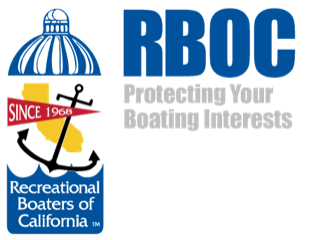Have a boat loan? Ask your lender for form 1098
WASHINGTON, March 6, 2018 – Just two short years ago, Congress extended some boat sales tax and mortgage interest deductions for recreational boat buyers. Excluding home equity loans, those deductions remain for next year’s 2018 tax season with the recently passed GOP tax overhaul plan signed into law on December 22, 2017, albeit with some new lower limits on lending amounts, according to Boat Owners Association of The United States (BoatUS).
Before passage of the Tax Cut and Jobs Act of 2017, BoatUS, the nation’s boating advocacy, services and safety group, had concerns that boat owners would be singled out for negative tax treatment. However, recreational vessels with a sleeping berth, cooking and toilet facilities will be treated equally with second homes and recreational vehicles that may qualify for some sales tax and mortgage interest deductions when filing (in 2019) a 2018 federal income tax return.
The new Tax Cut and Jobs Act reduces the previous $1 million second-home mortgage deduction limit to $750,000. “Most new boats sell for far below this new cap, so we don’t think that will have much impact on the average boat buyer,” said BoatUS Manager of Government Affairs David Kennedy. However, what could affect buyers of smaller vessels is the act’s removal of the deductibility on interest for a home equity loan. Historically, borrowers could deduct home equity interest on loans up to $100,000 ($50,000 for married couples filing separately). “With the new tax law, that deduction is gone,” said Kennedy.
For the current 2017 tax season, the existing deduction remains in place and is offered to new owners who paid substantial state sales taxes on a new or used boat purchased in 2017. If there is a loan taken, mortgage interest paid on the loan may also be deducted from federal income taxes. Again, the vessel must have a sleeping berth, cooking and toilet facilities to qualify. Here are the details:
2017 Sales Tax Deduction
The Tax Increase Prevention Act of 2014 continues to offer a federal tax deduction for state sales taxes paid on a recreational vessel. Boaters must choose either the state sales tax deduction or state income tax deduction on their federal tax return — they cannot take both. In addition, to take the state sales tax deduction, the sales tax on a boat purchase must be applied at the same tax rate as the state’s general sales tax. In order to claim the sales tax deduction, tax returns must be itemized. State sales taxes are entered on IRS form Schedule A, line 5b.
2017 Boat Loan Deduction
A boat is considered a second home for federal tax purposes if it has a galley, an installed head and sleeping berth. For those owners with a secured boat loan, mortgage interest paid on the loan may be deducted from federal income taxes. Taxpayers may use the home mortgage interest deduction for one second home in addition to their primary home, and must itemize deductions on their returns.
Some boaters may be unaware of this potential tax benefit because not all lending institutions send borrowers an IRS Form 1098, which reports interest paid. Not receiving the form does not preclude taking the deduction. If a 1098 is not available, boaters should contact their lender for the amount of interest paid and should enter it on line 11 on Schedule A along with the lender’s tax ID number. If a form 1098 is sent, boaters should simply enter the amount on line 10 of Schedule A.
For more details on the mortgage deduction on boats that qualify, go to IRS.gov and download IRS Publication 936.
Looking to 2018
The new limits on deductibility of mortgage interest and state sales taxes will kick in when boat owners calculate their 2018 tax liabilities along with changes to home equity loan deductions. Boaters are urged to contact a tax preparer or financial adviser for more information.
###





